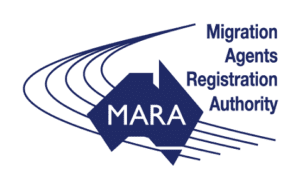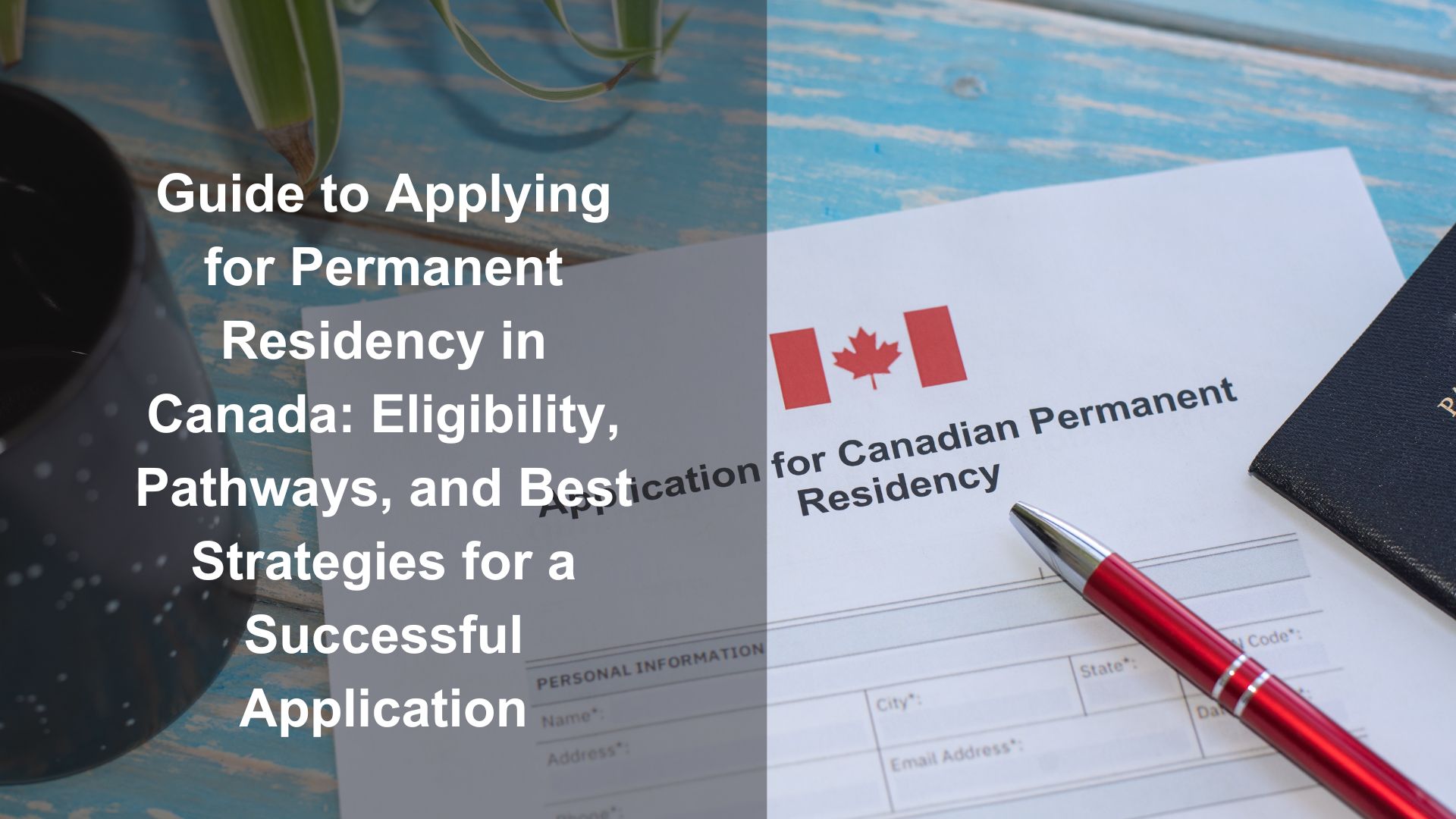Introduction In response to Canada’s objective of attracting and keeping French-speaking permanent residents outside of Quebec, the new pilot program for French-speaking students will offer a direct pathway to permanent residence for students who finish their studies in Canada. The measures to help French-speaking students obtain a study permit for these French-speaking minority communities include: Removing the need for students and their families to provide proof that they intend to leave Canada at the end of their temporary permit. Lowering financial thresholds, which will be adjusted to 75% of the low-income cut-off for the region in which the student plans to study. Providing access to settlement services. Francophone Community Immigration Class The qualifying requirements and specifics of a new francophone immigration pathway to Canada that will open in 2025 have been made public by Immigration Refugees and Citizenship Canada (IRCC). A new immigration route called the Francophone Community Immigration Class (FCIC) was created to assist newcomers who speak French in settling down in Canada permanently.Newcomers who want to settle in francophone communities outside of Quebec must apply for the FCIC. To be eligible, candidates will need referrals and a job offer. It is currently anticipated that this new approach will endure for five years. Under Canada’s Francophone immigration policy, the FCIC program permits French-speaking immigrants with work experience in high-demand occupations to become permanent residents of a place outside of Quebec. Those who are admitted via this route must plan to live in the community where they are nominated. International Student CAP Additionally, the international student cap that went into force earlier this year will not apply to students who enter Canada through this pilot program. However, the initial year of the pilot program is limited to 2,300 applications. Under this program, students who are granted a study permit can additionally bring their dependent children and spouse or common-law partner. This implies that the study permit program, which prohibits students from bringing their families unless they are enrolled in a master’s or doctoral degree or other professional program, will function differently from the French-speaking student pilot. Eligible communities for FCIC As of right now, IRCC has not announced the specified communities that are eligible for this category. But it is important to note that In order to apply for this, you need to get your eligibility assessment for Canadian Immigration. In that case, you can contact expert immigration consultants like TVG Migration that will not only provide your free assessment for Canadian Immigration eligibility but also, assist you in making Canada your home away from home. Conclusion A major step toward enhancing Canada’s cultural diversity and tackling labor market issues is the country’s new permanent residence pathway for French speakers. Through improved possibilities for immigrants who speak French, this initiative enhances Canada’s unique core while simultaneously promoting economic growth. Do you feel prepared to travel to Canada? Begin by honing your French and discovering the fascinating opportunities this path presents!
Home – Best Canada & Australia Immigration Consultant in Dubai
Category: Canada PR
Guide to Applying for Permanent Residency in Canada: Eligibility, Pathways, and Best Strategies for a Successful Application
Canada is widely recognized for its hospitable approach to immigration, providing diverse avenues for individuals worldwide to obtain permanent residency (PR). Along with access to healthcare and other social benefits, becoming a permanent resident of Canada grants you the freedom to live, work, and study anywhere in the country. Getting permanent residence in Canada is often the first step towards obtaining citizenship. But the procedure might be intricate, necessitating a thorough comprehension of the prerequisites, accessible routes, and tactics for a successful application. This blog provides a guide to applying for permanent residence in Canada. What are the ways to Immigrate to Canada? Express Entry The Express Entry procedure is a well-liked entry route into Canada. It’s the quickest route to the Great White North, with processing taking only six months. If you apply using the Express Entry system, you can choose from three government programs related to economic immigration: For skilled workers holding a degree from an accredited university, there is the Federal Skilled Worker Program (FSWP). You must speak one or both of the official Canadian languages fluently and have relevant job experience. For experienced craftspeople with a recognized diploma or job-specific training, there is the Federal experienced Trades Program (FSTP). You have to speak one or both of Canada’s official languages fluently. Skilled workers who have been in Canada for a minimum of 12 months on a study permit, work permit, or working holiday visa are eligible for the Canadian Experience Class (CEC) program. You will need to have the language proficiency required for your line of work, just like for the other two programs Provincial Nominee Program The PNP gives Canadian territories and provinces the authority to designate people who want to come to the country and settle in a particular province. Every province has its own standards, frequently based on the demands of its labor market. PNPs can function as independent streams or be matched with Express Entry. Quebec Skilled Workers Program (QSWP) The Federal Skilled Worker program offered by Express Entry has a Quebec counterpart called the Quebec Skilled Worker Program (QSWP). It was intended to enable families of highly skilled overseas workers to become permanent residents of Quebec. The application will assess your profile based on predetermined standards to determine how much of an impact you will have on Quebec’s economy and culture. Start Up Visa Program Entrepreneurs with the abilities and ability to launch ground-breaking companies in Canada are the focus of this program. In addition to meeting the necessary linguistic and financial standards, applicants must have the backing of a recognized organization in Canada. Atlantic Immigration Program The Atlantic Immigration Pilot, now known as the Atlantic Immigration Program, was created to give people with the necessary skills in in-demand occupations a route to Canada’s Atlantic Provinces. Therefore, you’ll discover that every province—including Nova Scotia, New Brunswick, Prince Edward Island, and Newfoundland & Labrador—has an abundance of opportunities if you’d like to live and work there. How to Apply for Permanent Residency? Demonstrating your proficiency in one of the official languages of Canada. The results of your International English Language Testing System (IELTS) test must be provided. If you apply through the Federal Skilled Workers Program, submitting an Education Credential Assessment (ECA). Possessing enough money to back your application Presenting evidence of education if an ECA is not required Age verification, like a birth certificate Employment records, such as a pay stub, reference letter, and job offer Certificate of Medical and Police Clearance Your passport is your travel document. Best Strategies for a Successful Application If you are applying through the Canada Express Entry Program, It is important to focus on improving the CRS Score. The CRS score can be improved by obtaining a Job offer in Canada, improving your test score, securing a provincial nomination and gaining more work experience. Immigration rules and regulations can be complicated. You may make sure your application is as solid as possible, prevent frequent blunders, and navigate the process more easily by hiring a professional immigration counselor or attorney. Immigration laws and regulations in Canada are subject to change. Keep yourself updated on any changes that can impact your application process or eligibility. Conclusion Applying for permanent residence in Canada is a big step that needs to be planned carefully, thoroughly prepared, and aware of the possible pathways and eligibility requirements. Selecting the appropriate immigration program, assembling the required paperwork, and using astute tactics will improve your chances of having your application accepted. Whether your goal is to establish a new life in Canada as an entrepreneur, skilled worker, or through family sponsorship, this guide offers a strong foundation to assist you confidently navigate the process.
How to Assess Your Eligibility for Canadian Permanent Residency: A Comprehensive Guide to PR Assessment
Immigration to Canada is popular among those looking for a stable economy, a good standard of living, and a wide range of opportunities. Thousands of individuals from all over the world apply for Canadian Permanent Residency (PR) each year, attracted by the country’s hospitable immigration laws, diverse community, and possible citizenship path. Finding out if you qualify for permanent residence (PR) might be difficult given the variety of immigration schemes that are available. This blog will provide you a thorough explanation of the process of determining your eligibility for permanent residence in Canada. It will cover the several programs available, important prerequisites, and methods for assessing your qualifications. Understanding Canada Permanent Residency (PR) There are several Immigration pathways with which individuals can apply for Permanent Residency. Each of these pathways have their own specifications and requirements which can be evaluated using certain criterias. The most common programs include; Express Entry System Provincial Nominee Program Business Immigration Family Sponsorship Refugees and Humanitarian Program Eligibility Assessment for Canadian Permanent Residency Education The evaluation of an applicant’s foreign credentials by a designated organization, such as World Education Services (WES), is necessary to ascertain whether they are equivalent to Canadian educational standards. Points are awarded based on the level of education, which includes: Secondary school diploma (high school graduation); Post-secondary diploma (college or technical education); Bachelor’s degree; Master’s degree; Doctoral degree (PhD) Language Minimum language proficiency varies by immigration program; for example, in the Express Entry system, points are awarded to applicants based on language test results; higher language proficiency results translate into more Comprehensive Ranking System (CRS) points, which increase your chances of being invited to apply (ITA) for permanent residence. Work Experience Applicants must show proof of full-time (or comparable part-time) paid work experience in their designated NOC occupation for at least one year in the previous ten years in order to be eligible for the majority of immigration programs. Your CRS score increases with experience, particularly in skilled worker programs like Express Entry. Age The evaluation of PR eligibility also takes age into account. Under the Express Entry system, applicants between the ages of 18 and 35 receive more points in the CRS; the number of points awarded decreases gradually beyond the age of 35, making younger applicants more competitive. Nevertheless, older applicants may still be able to apply through PNPs or other programs if they meet specific requirements. Job Opportunity in Canada In PNPs, provinces frequently give preference to applicants who have work offers in labor-shortage industries. In the Federal Skilled Trades Program (FSTP), when individuals with particular trade skills are in high demand, a job offer can also play a significant role. CRS Score & Express Entry Draw The Comprehensive Ranking System (CRS) score is a key factor in assessing a person’s eligibility for immigration under the Canadian Express Entry system. The CRS score is a points-based system that evaluates a candidate’s profile based on different characteristics such as age, education, work experience, language proficiency, and adaptability. It offers a consistent evaluation of a person’s prospective value to the public and private sectors of Canada. The Canadian government regularly holds Express Entry drawings to extend invitations to the top-scoring individuals to apply for permanent residence in the country. Candidates who reach or exceed the set CRS score threshold for each draw are sent Invitations to Apply (ITAs). Conclusion A number of factors, including age, adaptability, work experience, education, language proficiency, and job offers, must be carefully taken into account during the multi-step process of determining your eligibility for Canadian Permanent Residency. By comparing your qualifications to the requirements of various immigration programs, you can determine which pathway to PR is best for you and your family.
Recent News
How to reduce the risk of
Are You Eligible for the New
Dubai to Canada Tourist Visa: Everything
Categories
- Australia
- Australia immigration
- Australia Immigration Services
- Australia Perfect Place To Migrate
- Australia PR Consultant AbuDhabi
- Australia Skilled Immigration
- Australia visit visa
- Australia work permit from Dubai
- Australian immigration
- Basic Requirements For Getting A Canada Skilled Immigration Visa
- Best Immigration Consultants in Dubai
- Business
- Canada
- Canada Best Country To Settle
- Canada Express Entry Programe
- canada imigration
- Canada immigration consultants in Dubai
- Canada immigration from Dubai
- Canada PR
- Canada PR from Dubai
- Canada Student Visa
- canada working visa
- Canadian consultancy Services in Dubai
- Express Entry Program
- Express Entry Program in Canada
- How To Apply For Australia PR
- immigration consultancy dubai
- immigration rules in Canada
- Migrate to Canada from Dubai
- Schengen Visa
- student visa
- study in australia
- UAE TO CANADA IMMigration
- Uncategorized
- United States
- Visit Visa
- Work Permit
Tags
Call us anytime during business hours:
Mon-Sun: 10:00 AM to 7:00 PM
Email Us info@tvgmigration.com
IN PARTNERSHIP WITH

REGISTERED WITH RCIC & MARA


Opening Hours
Call us anytime during business hours:
Mon-Sun: 10:00 AM to 7:00 PM
Email Us
info@tvgmigration.com
In partnership with


Registered with IRCC
![]()

©2024. TVG Migration DMCC Copyright | All rights reserved by The Virmani Group




